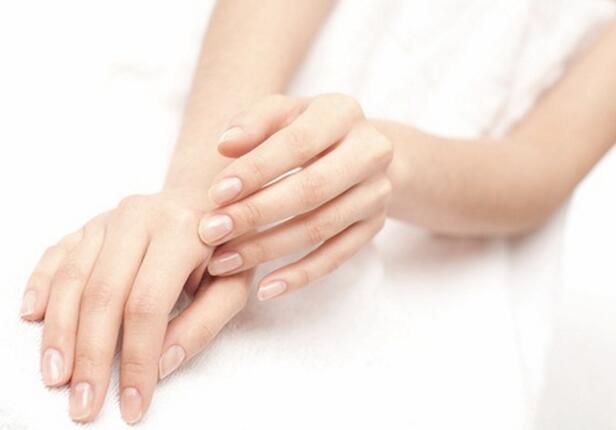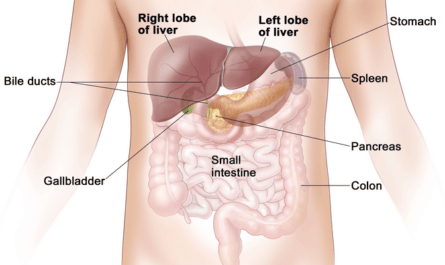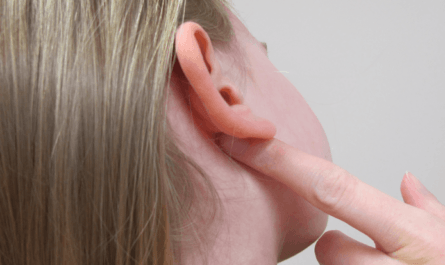Have you ever experienced an itchy sensation in your left or right hand and wondered what it could mean? Many cultures and belief systems have superstitions and interpretations associated with this phenomenon. While there is no scientific evidence to support these beliefs, they provide us with interesting insights into different traditions and perspectives on luck and fortune. In this article, we will explore the common meanings, other possible interpretations, and what to do if your left or right-hand itches. So, let’s dive in and unravel the mysteries behind this curious sensation!
What is the left or right-hand itching meaning?
In various Western traditions, an itchy left hand is considered a sign of bad luck. It is believed to foreshadow impending misfortunes, ranging from minor inconveniences to more significant setbacks.
However, it is important not to jump to conclusions and assume the worst. Sometimes, bad luck can be followed by good luck, and a single instance of misfortune does not define the entire outcome of a situation. It is essential to keep an open mind and remember that bad luck is temporary, and new opportunities will arise.
In Hebrew tradition, an itchy left palm is seen as a bad omen for your finances. It suggests that you might encounter money-related troubles shortly. Whether it is a higher-than-expected phone bill or a drop in your household income, financial challenges may be on the horizon.
To navigate this potential hardship, it is advisable to be cautious with your spending habits and avoid unnecessary expenses. This is also an opportunity to develop greater financial discipline, which can pay off in the long run.
Interestingly, some Irish superstitions present a contrasting interpretation. According to these beliefs, an itchy left hand signifies that you are about to receive money.
To make this prediction come true, it is said that you need to spit in your hand. While this may seem peculiar, it highlights the belief in the power of intention and the role of superstition in shaping our actions and expectations.
In certain Indian traditions, the interpretation of an itchy left hand depends on the gender of the individual. For masculine individuals, an itchy left hand is considered bad luck, while for feminine individuals, it is seen as a sign of good luck.
Conversely, an itchy right hand is considered good luck for masculine individuals and bad luck for feminine individuals. If you do not identify strictly as masculine or feminine, the meaning of an itchy left or right hand may be less clear-cut.

10 Common Causes of Left or Right-Hand Itching
Understanding the reasons behind the itch is the first step towards relief. Here, we’ll explore the 10 common causes of left or right-hand itching, shedding light on what might be bothering you.
1. Dry Skin
One of the most frequent causes of hand itching is dry skin. When your skin lacks moisture, it becomes flaky, rough, and prone to irritation. Factors such as harsh weather, excessive hand washing, or the use of harsh soaps can contribute to dry skin.
2. Contact Dermatitis
Contact dermatitis occurs when your skin reacts to certain substances it comes into contact with. This can lead to itching, redness, and sometimes blisters on your hands. Common culprits include allergens like poison ivy, certain metals, or even beauty products that contain irritating chemicals.
3. Allergies
Allergic reactions to various triggers can manifest as itching on your hands. These triggers can range from certain foods and medications to environmental factors like pollen or pet dander. Allergies vary from person to person, so identifying the specific allergen is crucial.
4. Eczema
Eczema, a chronic skin condition, can cause intense itching, often affecting the hands. It results in red, inflamed, and itchy skin. Eczema flare-ups can be triggered by stress, certain foods, or contact with irritants.
5. Insect Bites
Insect bites or stings on your hands can lead to itching, swelling, and discomfort. Common culprits include mosquitoes, ants, and spiders. Scratching these bites can exacerbate the itching and lead to infection.
6. Psoriasis
Psoriasis is an autoimmune skin disorder that can cause itchy, scaly patches on your hands. These patches can be painful and may crack or bleed. Psoriasis requires ongoing management and may be linked to genetics and immune system issues.
7. Stress
Believe it or not, stress can trigger itching on your hands due to the body’s physiological response to tension. Stress releases chemicals in your body that can lead to itching. Managing stress through relaxation techniques can help alleviate this symptom.
8. Nerve Issues
Problems with the nerves in your hands can also lead to itching. Conditions like carpal tunnel syndrome may cause this sensation. Nerve compression or damage can result in abnormal sensory signals, leading to itching or other uncomfortable sensations.
9. Underlying Health Conditions
Certain underlying health issues, such as liver or kidney problems, can manifest as itching in the hands. These systemic conditions can disrupt the body’s balance and lead to skin-related symptoms.
10. Medications
Some medications can have itching as a side effect. If you suspect this, consult your healthcare provider for alternatives or adjustments to your medication regimen. It’s essential to communicate with your doctor to find the best solution.
Natural Remedies to Soothe Hand Itching
1. Aloe Vera
Aloe vera is known for its soothing and anti-inflammatory properties. It contains compounds that can reduce irritation and provide instant relief from itching.
- Cut a fresh aloe vera leaf and extract the gel.
- Apply a generous amount of aloe vera gel to the itchy area.
- Gently massage it into your skin.
- Leave it on for 15-20 minutes, then rinse with lukewarm water.
- Repeat as needed.
2. Oatmeal Soak
Oatmeal contains anti-inflammatory compounds that can calm irritated skin and reduce itching. It also acts as a natural moisturizer.
- Grind oats into a fine powder.
- Mix the oatmeal powder with water to create a paste.
- Soak your hands in the oatmeal mixture for 15-20 minutes.
- Gently pat your hands dry with a clean towel.
- Use this remedy daily for relief.
3. Coconut Oil Comfort
Coconut oil is a fantastic natural moisturizer. It can hydrate dry skin and reduce itching. The fatty acids in coconut oil nourish your skin.
- Warm a small amount of coconut oil in your hands.
- Apply it to the itchy area and gently massage.
- Leave it on for at least 30 minutes.
- Rinse with lukewarm water and pat your hands dry.
- Use this remedy daily for the best results.
4. Chamomile Tea Compress
Chamomile has anti-inflammatory and soothing properties. Using chamomile tea as a compress can provide relief from itching and redness.
- Brew a cup of chamomile tea and let it cool.
- Soak a clean cloth in the tea and wring out the excess liquid.
- Place the damp cloth on your itchy hand.
- Leave it for 15-20 minutes.
- Use this as often as needed for comfort.
5. Baking Soda Solution
Baking soda has anti-inflammatory properties that can reduce itching and irritation. It also helps to balance the skin’s pH.
- Mix baking soda with water to create a paste.
- Apply the paste to the itchy area.
- Allow it to sit for 10-15 minutes.
- Gently rinse it off with water.
- Use this remedy a few times a week.
6. Honey
Honey is a natural humectant, which means it can lock in moisture and soothe dry skin. It also has antimicrobial properties.
- Apply a thin layer of raw honey to the itchy area.
- Leave it on for 15-20 minutes.
- Rinse with lukewarm water.
- Use this remedy as often as needed for relief.
7. Cold Compressions
Cold compresses can temporarily numb the itching and reduce inflammation.
- Wrap ice in a cloth.
- Gently press the ice pack against the itchy area for a few minutes.
- Remove it for a while and then reapply if needed.
- Use this remedy as often as needed for comfort.
8. Apple Cider Vinegar
Apple cider vinegar has anti-itch properties and can help balance the skin’s pH.
- Mix equal parts of apple cider vinegar and water.
- Apply it to the itchy area.
- Let it sit for a few minutes.
- Rinse with lukewarm water.
- Use this remedy a few times a week.
9. Lavender Oil Massage
Lavender oil has anti-inflammatory properties and a pleasant aroma that can reduce itching and promote relaxation.
- Mix a few drops of lavender oil with a carrier oil like coconut or olive oil.
- Gently massage it into the itchy hand.
- Leave it on for at least 30 minutes.
- Rinse with lukewarm water.
- Use this remedy as often as needed.
10. Epsom Salt Bath
Epsom salt is rich in magnesium, which can relax muscles and reduce itching.
- Fill a bowl or basin with warm water.
- Add a few tablespoons of Epsom salt and stir until it dissolves.
- Soak your hands in the Epsom salt bath for 15-20 minutes.
- Gently pat your hands dry with a clean towel.
- Use this remedy as often as needed.
FAQs
1. What is the best way to relieve itchy hands?
Several methods can help relieve itchy hands, depending on the cause. Moisturizing regularly with a hypoallergenic lotion, avoiding irritants, and consulting a dermatologist for proper diagnosis and treatment are good starting points.
2. When should I be concerned about my itchy hands?
If your itching persists, is severe, or is accompanied by other concerning symptoms, it’s advisable to seek medical attention. This could indicate an underlying health issue that requires treatment. Don’t hesitate to consult a healthcare professional.
3. How can I prevent itching on my hands?
Preventing itching involves proper skincare, avoiding irritants, and managing underlying health conditions. Regular moisturizing and using gloves when needed, especially during activities that may expose your hands to irritants, can also help.
4. Should I be concerned about itching if it’s only on one hand?
Unilateral itching, or itching on one hand, can have various causes. While it might be minor, it’s essential to get it checked by a healthcare provider to rule out any serious conditions. Unilateral itching could be due to localized issues or nerve-related problems that require attention.






